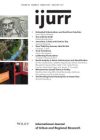The relationship between urbanization and democratization remains under‐theorized and under‐researched. Radical urban theory has undergone a veritable normative turn, registered in debates about the right to the city, spatial justice and the just city, while critical conceptualizations of neoliberalism present ‘democracy’ as the preferred remedy for injustice. However, these lines of thought remain reluctant to venture too far down the path of political philosophy. The relationship between urban politics and the dynamics of democratization remains under‐theorized as a result. It is argued that this relationship can be usefully understood by drawing on lessons from avowedly normative styles of political theorizing, specifically post‐Habermasian strands of critical theory. Taking this tradition seriously helps one to notice that discussions of urbanization, democracy, injustice and rights in geography, urban studies and related fields invoke an implicit but unthematized democratic norm, that of all‐affected interests. In contemporary critical theory, this norm is conceptualized as a worldly register of political demands. It is argued that the conceptual disaggregation of component values of democracy undertaken through the ‘spatial turn’ in recent critical theory reorients the analysis of the democratic potentials of urban politics around the investigation of the multiple forms of agency which urbanized processes perform in generating, recognizing and acting upon issues of shared concern.
Details
Written by:
Clive Barnett
Digital Object Identifier (DOI)
10.1111/1468-2427.12148
About DOI
Read full article as PDF
Read full article as HTML
See the references for this article
